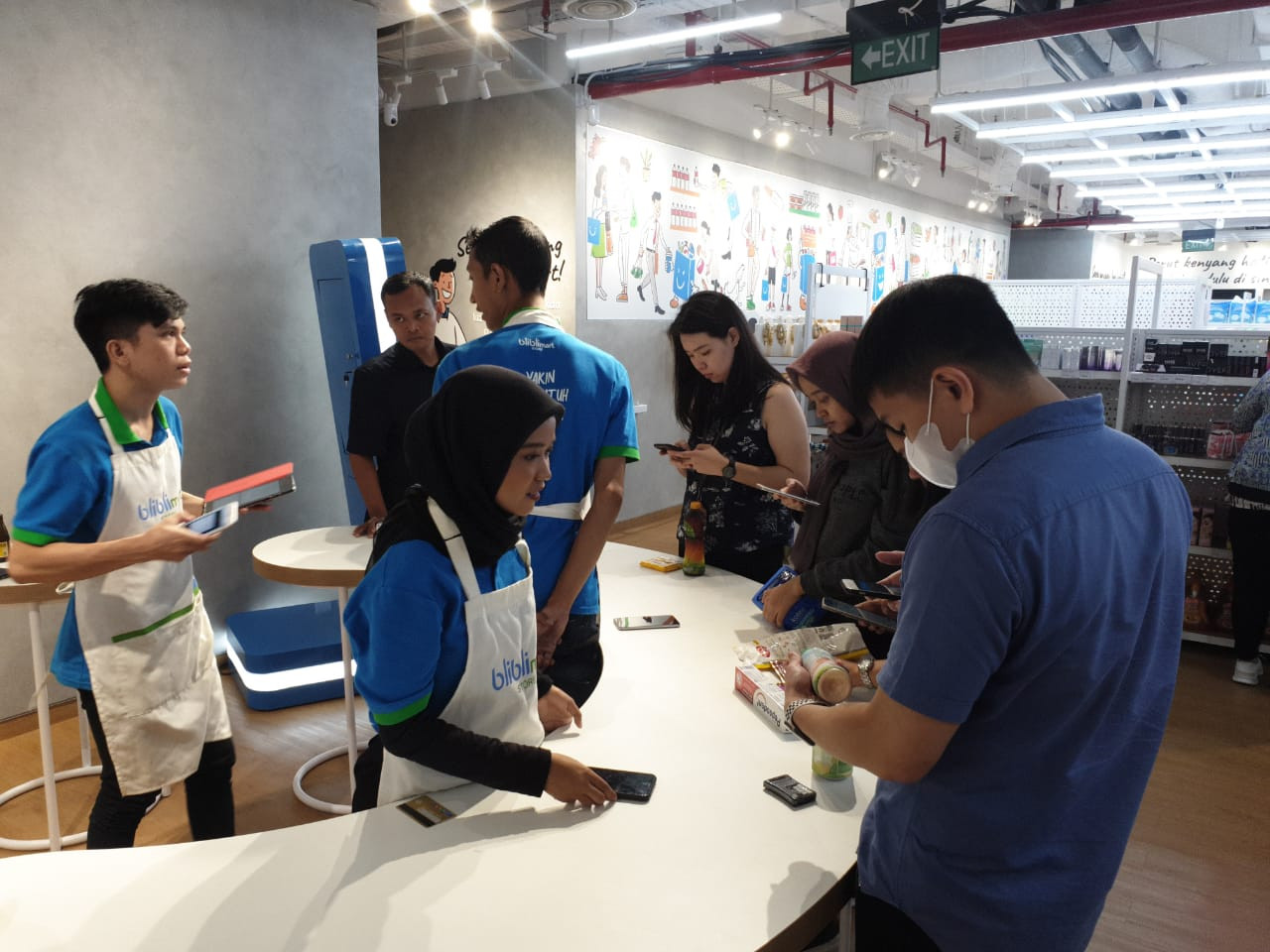Popular Reads
Top Results
Can't find what you're looking for?
View all search resultsPopular Reads
Top Results
Can't find what you're looking for?
View all search resultsBlibli reports fivefold increase in sales through its grocery service
Blibli has reported a massive increase in sales through its grocery-shopping platform, Blibli Mart, but lower sales of airline tickets.
Change text size
Gift Premium Articles
to Anyone
E
-commerce company Blibli has reported that sales of its grocery-shopping platform, Blibli Mart, jumped fivefold during the COVID-10 pandemic compared to normal days.
Blibli executive vice president for operations Lisa Widodo said Tuesday that sales on the e-commerce platforms were rising during the outbreak because people were shopping from home to comply with the large-scale social restrictions (PSBB) – which are now being phased out in some places, including Greater Jakarta.
However, sales of some product categories, such as airline tickets and hotel bookings, had declined. She did not detail the figure of the sales.
“I think the various categories within our platform provide some kind of balance,” Lisa said during an online discussion on Tuesday.
The company offers 17 product categories by partnering with more than 100,000 businesses, enabling it to reap the benefits of the stay-at-home order.
The coronavirus pandemic, which has infected more than 41,000 people nationwide as of Wednesday afternoon, has forced people to shop online to avoid contracting the virus in contact-intensive public places like markets or shopping centers.
Shopping centers in Jakarta reported that the number of visitors had halved since the city imposed province-wide coronavirus restrictions, according to market research firm Nielsen Indonesia.
Even if the pandemic went away soon, eight of 10 people surveyed by Nielsen Indonesia said they did not yet want to go to shopping malls like they used to.
Shopping centers are not the only business to observe a change in customer behavior. Lisa said Blibli’s customers were now demanding faster delivery.
This had prompted the e-commerce company to provide same-day delivery options with the help of online ride-hailing companies Gojek and Grab Indonesia.
“In the past, they were okay to receive the package using standard delivery,” said Lisa. “But I think when they are at home, you know, they become impatient.”
A recent survey by management consulting company Redseer revealed that Indonesia’s e-commerce would grow 50 percent year-on-year to reach US$35 billion this year from $23 billion in 2019 as the virus has created a new normal in online shopping habits.
Redseer Southeast Asia partner Roshan Raj Behera told The Jakarta Post in May that around 30 percent of the survey respondents said they were new to online marketplaces, 40 percent of whom said they would keep using e-commerce after the outbreak.
“Our interviews with consumers reveal that there are also a lot of new consumers in groceries e-commerce,” Redseer Southeast Asia director Marigank Gutgutia said.
More than half of the respondents had tried an e-groceries platform during the pandemic, he added.










